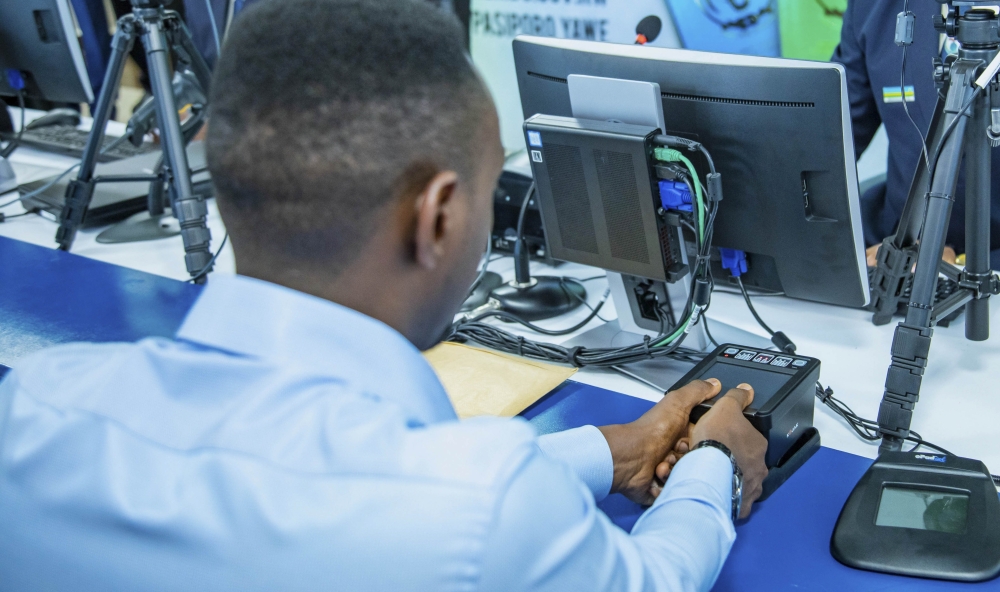

Rwanda is piloting a new SIM card registration system that incorporates biometric data verification so as to improve security and data integrity.
Biometric SIM registration is the process of using biometric data, such as fingerprints or facial recognition, to verify the identity of individuals during the SIM card registration process.
Under new regulations issued by Rwanda Utilities Regulatory Authority (RURA), on August 20, SIM card registration will be integrated with the National Identification Agency (NIDA) database. This approach aims to ensure consistency, prevent fraud, and protect personal data.
Rwanda Investigation Bureau (RIB) on September 9 announced the arrest of 45 people suspected of orchestrating mobile money scams targeting numerous members of the public. The suspects, aged between 20 and 35, operated across the country and were apprehended after coordinated efforts between RIB and the Rwanda National Police (RNP), sparked by a surge in public complaints.
The new SIM card registration process requires applicants to present their identity documents and undergo biometric verification, with special provisions for individuals with disabilities. The system is expected to streamline the SIM card registration process and improve data security.
Biometric verification process
The new registration system mandates that applicants present their identity cards, be physically present, and verify their personal information. Biometric data such as fingerprints or facial images, will be compared with NIDA records to confirm identity.
The registering agent or staff will electronically verify the applicant’s biometric data against the NIDA database and ensure that the returned information matches the physical appearance of the applicant.
Know Your Customer (KYC) compliance
The licensee (telecom operator) is required to verify the applicant’s live fingerprint or facial image against information retrieved from NIDA before completing the registration. SIM card registration will follow the same Know Your Customer (KYC) standards as those used in the NIDA database, ensuring that no duplicate or fraudulent identities are registered. Each SIM card will be linked to a unique identifier, and all registration activities are logged to prevent misuse.
ALSO READ:Telcos face hefty fines for illegal SIM registrations
Special provisions for people with disabilities
If an applicant has a disability that makes fingerprint verification impossible, the system will accommodate this. The staff will mark it in the system, and the back-end office will verify and approve the application. In these cases, additional biometric data, such as facial images, will be used for identification.
SIM card registration for foreign residents
Foreign nationals residing in Rwanda such as those holding work permits, refugees, asylum seekers, or immigrants must register their SIM cards using valid identification documents. Foreigners without a resident permit must present the travel document (passport or ID) they used to enter the country.
The licensee will conduct fingerprint verification with the Directorate General of Immigration and Emigration (DGIE) to confirm identity. The applicant’s live facial image and biometric data will also be captured and matched with their travel document information.
ALSO READ: RURA announces new measures to curb mobile money scams
Activation of SIM cards
The SIM card will only be activated after successfully completing the KYC verification process and confirming the authenticity of the passport or ID details. For foreign applicants with disabilities or defaced fingerprints, alternative biometric data, such as live facial images, are used to verify their identity before activating the SIM card.
The system, which links biometric verification with the NIDA database, aims to prevent fraud and maintain accurate records.
While still in its testing phase, this framework offers a robust solution for future SIM card registrations, accommodating both citizens and foreign residents, including those with disabilities. Once fully implemented, it is expected to streamline the registration process and ensure compliance with regulatory standards.


